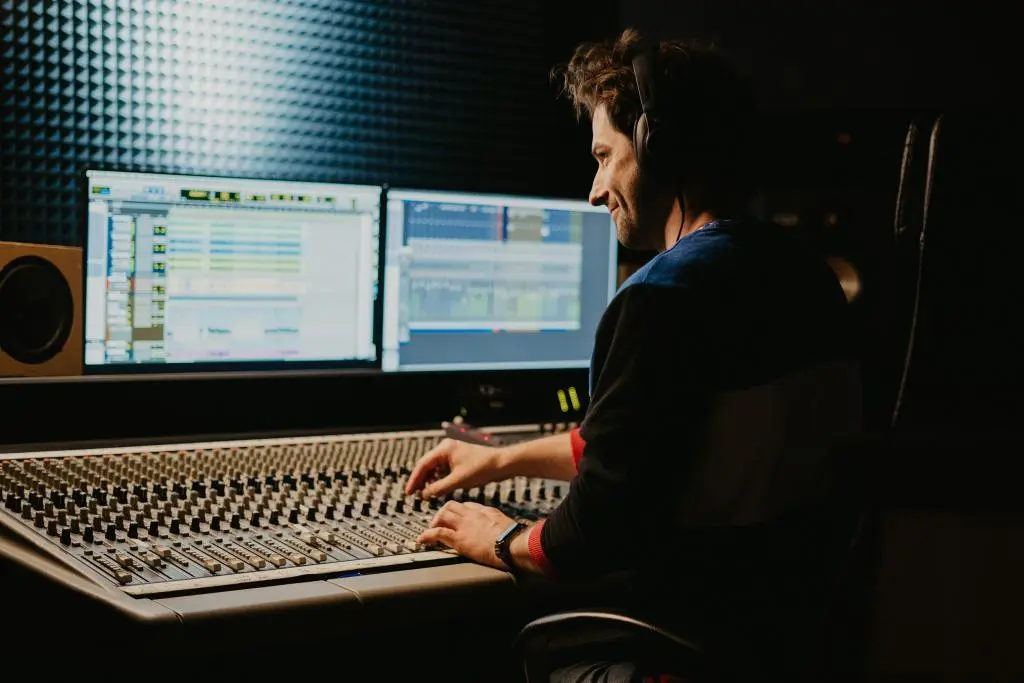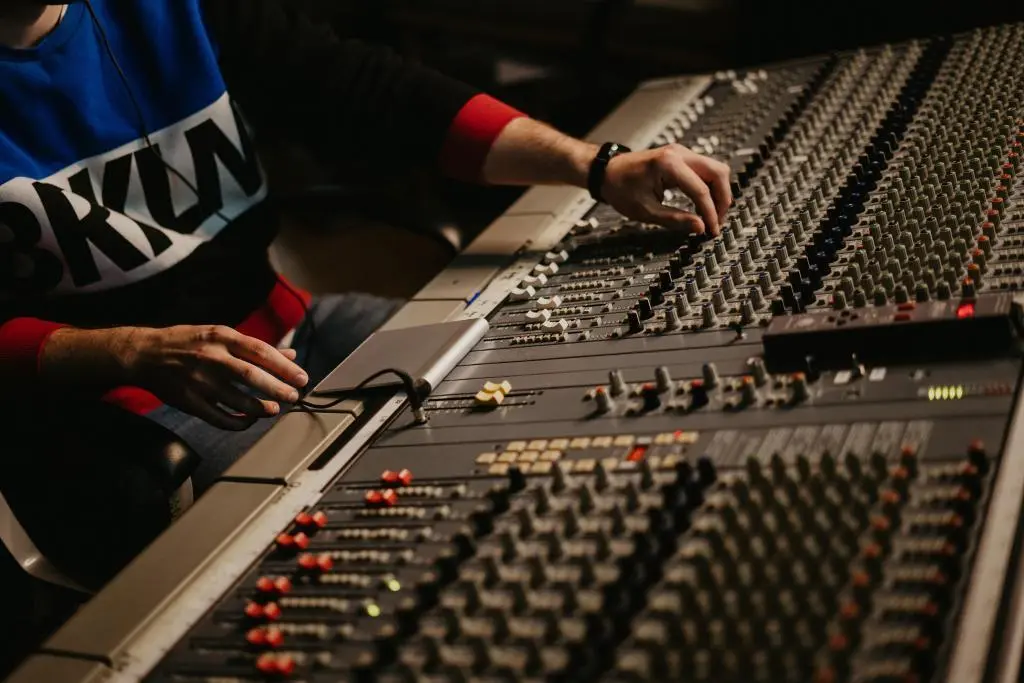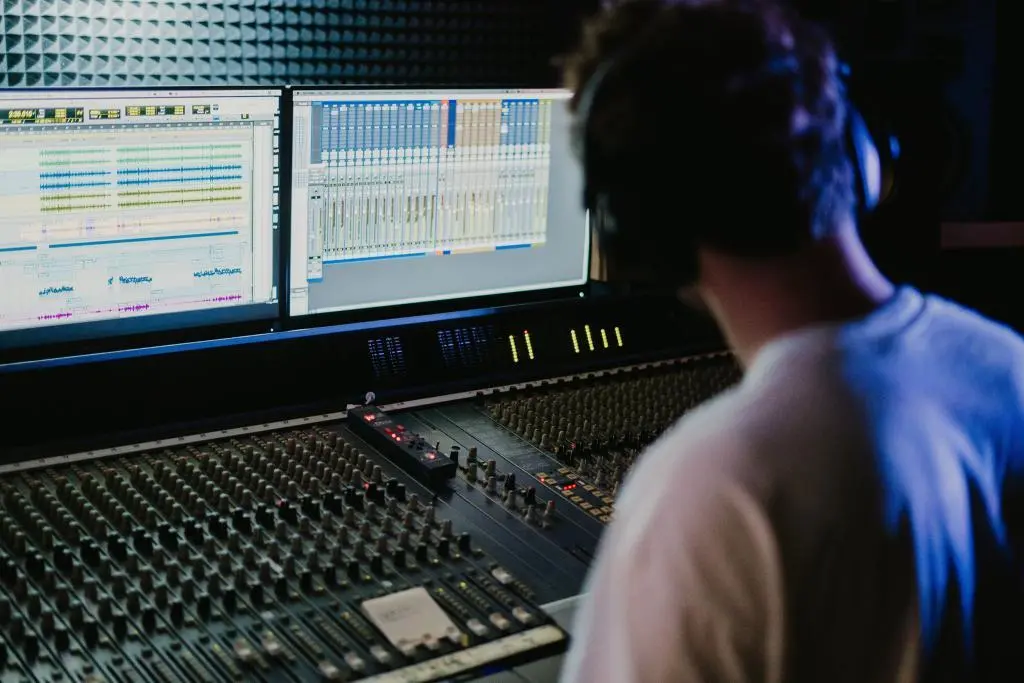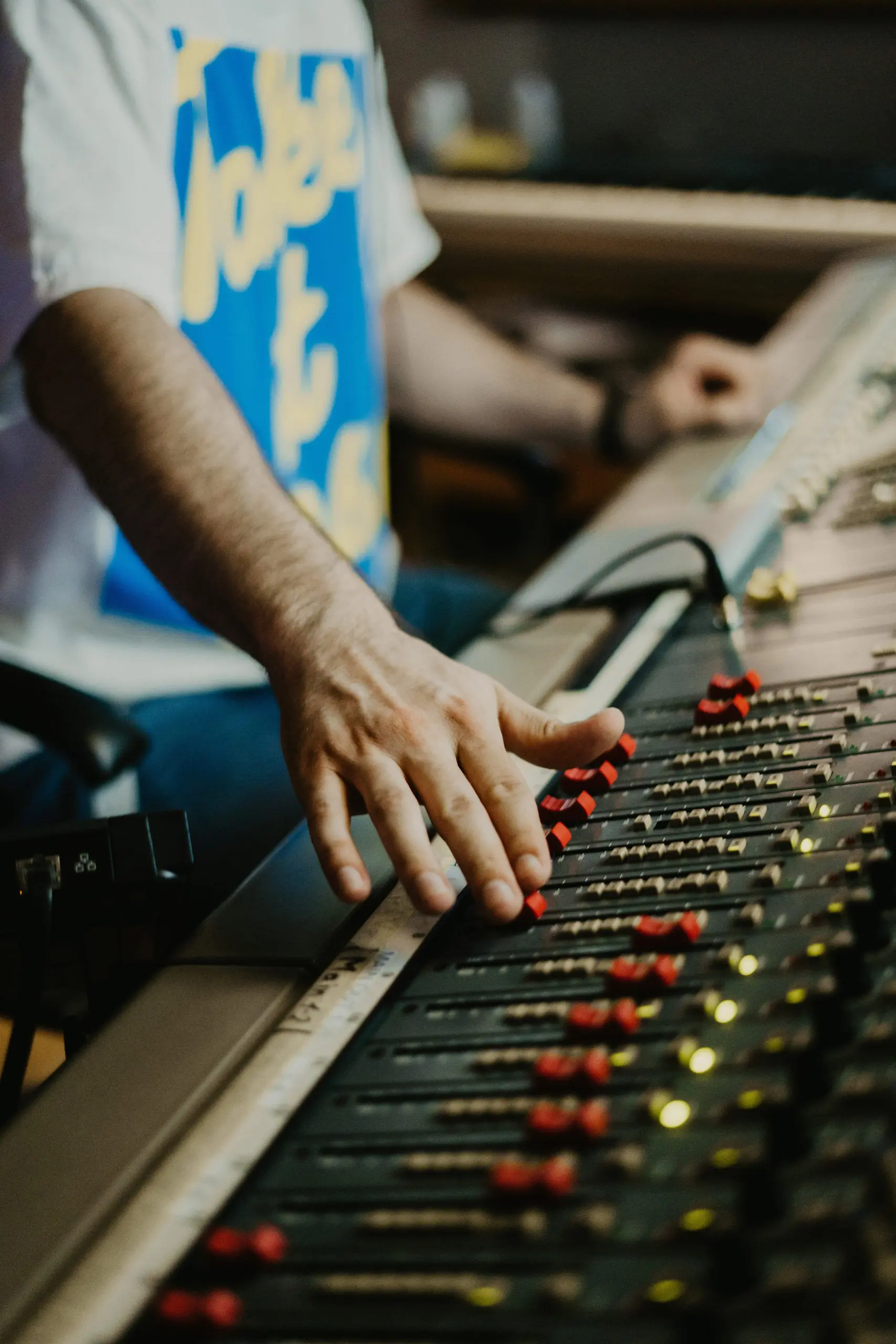For anyone with a passion for music, audio engineering can seem like a dream job. Being able to work hands-on with the latest music technology and equipment, fine-tuning tracks to perfection, and collaborating with talented artists and producers – it’s an exciting and creative career path for sure. However, like any profession, audio engineering has both significant pros and cons to weigh when considering it as a long-term career option.
So, is audio engineering actually a good career choice? While there’s no objectively right or wrong answer, looking closely at all aspects of the job can help you make an informed decision. This article will provide an in-depth exploration of the key pros and cons of pursuing audio engineering as a career path. We’ll look at everything from the rewarding creative opportunities to challenging industry pressures. With realistic expectations about both the benefits and downsides, you’ll be better equipped to decide if audio engineering aligns with your professional and personal goals.
Is Audio Engineering a Good Career? Table of Contents
First, let’s start with a quick background on what audio engineers actually do day-to-day. Audio engineers use technology like digital audio workstations, mixing consoles, microphones, and other hardware/software to craft the best possible sound for musical recordings and live performances.
The specific work depends on the engineer’s specialty – recording in studios, live sound reinforcement, audio for film/TV, audio for video games, and more. But across all types of audio engineering, the key tasks include setting up equipment, recording/capturing sound sources, editing and mixing tracks, troubleshooting technical issues, and working closely with artists, producers, and other team members to achieve a desired musical vision. It’s a career path that blends technical skills and creative expression.

Now that we’ve covered the basics, let’s dive into the meat of this article, a thorough examination of whether audio engineering is truly a good, viable, and rewarding long-term career choice for those considering entering the field.
Both the beneficial and challenging aspects will be analyzed in detail. If you’ve ever asked yourself “is audio engineering really for me?”, this comprehensive pro/con guide will help lead you to a well-informed conclusion.
Let’s begin with the most compelling potential pros of pursuing audio engineering as a lifelong profession.
Pros of Pursuing Audio Engineering
If you have the right blend of creative passion and technical aptitude, a career in audio engineering offers some compelling benefits. Let’s examine the biggest pros this career path has to offer:
Fulfilling Creative Potential
At its heart, audio engineering provides the chance to harness technology’s power for artistic goals. If you love music and find joy in helping realize other’s creative visions, this career delivers immense fulfillment. Mixing tracks allows you to play a pivotal role in shaping how a song or album ultimately sounds. For those with an innate artistic drive, audio engineering satisfies creative cravings.
Other artistic pros include directly collaborating with talented musicians, producers, and artists to transform raw recordings into polished works. The joy of bringing musical ideas to life and helping artists fully express themselves through sound is a major perk for creatively-minded engineers.
Developing Technical Prowess
The other core aspect of audio engineering is relishing the mastery of complex audio technology and equipment. This career provides the chance to constantly learn cutting-edge skills like utilizing digital audio workstations, operating mixing consoles, and troubleshooting issues. If you love understanding gear inside and out, finding fixes for tech problems, and continually expanding your engineering knowledge, you’ll thrive here.
Expert-level technical prowess also allows you to flex your analytical abilities through critical listening and methodically balancing tracks. The journey of developing hardcore engineering chops can be supremely rewarding for tech-oriented people.
Exciting and Varied Work Environments
Another major advantage of audio engineering is the diversity of work settings available. Whether you prefer a collaborative studio atmosphere, independent live sound gigs, post-production houses, broadcast studios, or other domains, there are options to suit your preferences.
The variety and flexibility in potential work environments keeps things exciting. You can shift between different specialties to constantly engage your interests. If stimulating workspaces and room for growth appeal to you, audio engineering delivers.
Strong Job Prospects and Opportunities
Fortunately for prospective audio engineers, the field also currently provides strong employment potential and upside. There is rising demand for qualified engineers in nearly all sectors, from music studios to television production houses. This translates to above-average job security for specialists who excel.
There are also ample opportunities for upward mobility and eventually transitioning into leadership roles like Head Recording Engineer, Chief Mixing Engineer, Studio Director, etc. For those who value defined growth trajectories, audio engineering offers this.
And finally, abundant freelancing and entrepreneurship prospects exist for experienced engineers craving independence. If being your own boss appeals to you, few careers provide as much flexibility.
Earning Potential
All of these pros would mean little without the ability to earn a good living. Fortunately, experienced audio engineers can expect competitive salaries averaging $50k-$100k+. While entry-level wages start more modestly, once you’ve proven your expertise, composers reward you appropriately.
The potential for overtime pay during busy project periods provides further income upside. Additionally, versatile freelancers can maintain multiple income streams through a diverse client base. For those able to excel at their engineering craft, healthy earnings follow.
In summary, for candidates with the right blend of creative zeal and technical aptitude, audio engineering offers the chance to build a rewarding, fulfilling, and financially stable career. It provides an excellent outlet for both artistic and analytical inclinations. Before diving in, make sure the “pros” truly align with your long-term professional and personal goals.

Cons of the Audio Engineering Career Path
While the creative and technical pros seem alluring, audio engineering does come with significant challenges. Before pursuing this career, honestly assess whether you can handle the following “cons”:
Long and Irregular Hours
Unpredictable, demanding hours are par for the course. Tight project deadlines often require long nights and weekend work to get the job done. This can disrupt sleep schedules and strain personal relationships.
Similarly, freelancers in particular must deal with feast-or-famine seasons based on booking cycles. Maintaining work-life balance amid erratic schedules presents difficulties for many engineers. Consider your ability to adapt.
High-Pressure Working Environment
Audio engineering also involves chronic stressors. With clients expecting technical perfection, there’s immense pressure to deliver flawless results while avoiding mistakes. Troubleshooting emergencies quickly also adds stress. Success requires grace under fire.
Furthermore, inflated artist/client egos can lead to demanding and unreasonable requests. Can you stay cool when an impatient musician insists you re-mix a track for the 10th time? Unflappable nerves help greatly in this gig.
Intense Competition
The reality is also that too many talented candidates chase too few entry-level openings. This translates to cutthroat competition. Being well-trained isn’t enough – you must aggressively market services and network to get gigs. Self-promotion is mandatory for freelancers.
And once established, you must relentlessly hone skills through continuing education to avoid getting passed up by hungrier upstarts. In music, complacency kills careers quickly. Be prepared to continually prove yourself.
Education Time and Costs
While some audio engineers are self-taught, most reputable employers require at least a bachelor’s degree in music production, audio technology, or a similar field. This represents a major time and financial commitment – usually 4+ years earning a relevant degree.
Educational costs often require taking on student debt. And opportunity costs must be considered regarding the earning potential lost while studying. Proper training doesn’t come cheap or easy.
Freelancing Uncertainty
Many eventually pursue freelance engineering careers for the freedom. But be warned – this path involves major income variability and the ongoing struggle of hustling for new work. Freelancing requires serious business savvy and marketing abilities.
Also, independent contractors lack benefits like health insurance that salaried roles provide. The unpredictable freelance lifestyle is not for the faint of heart. Make sure it aligns with your risk tolerance before diving in.

Key Factors to Assess Viability for You
Deciding if audio engineering aligns with your talents and interests requires honest self-reflection. Before pursuing this career, ask yourself:
Do you have genuine lifelong passion for music? This is a must. Casual musical interest isn’t enough to sustain you through the rigors of this industry. Long-term success requires absolute, bone-deep love of music.
Can you accept erratic hours and high-pressure demands? The irregular schedule and chronic stress won’t work for everyone. If you require stability and work-life balance, look elsewhere. But if you thrive under pressure, it’s a great fit.
Are you eager to continuously update technical skills? Complacency kills careers quickly in the music world. You must feel driven to constantly learn new techniques and equipment. Passion for lifelong learning is vital.
Do you have natural aptitude for troubleshooting tech issues? There’s no room for slow problem-solvers in time-sensitive audio engineering. You must be able to quickly diagnose and fix equipment issues. Analytical abilities are key.
Can you handle the business aspects of freelancing? Independent engineers essentially run their own small business. You’ll need marketing, networking, budgeting, and other business skills to thrive. If this appeals to you, freelancing provides great upside.
How will you budget finances during lean periods? Erratic project flow means smart financial planning is crucial. Build emergency savings to withstand income dips between booked gigs. Fiscal discipline helps immensely.
Carefully and honestly assessing how these core aspects of audio engineering align with your skills, interests, and personality is crucial. Some may feel drawn to the creative potential yet dread the business hustling required. Others may adore the tech yet burn out quickly from unrelenting project deadlines. Know yourself before committing fully.
The exciting benefits can make audio engineering look like a dream job at first glance. But ultimately, individuals with resilience, unwavering musical passion, business savvy, and technical zeal are best suited for the demands of this field. Reflect deeply on whether that describes you.

Is Audio Engineering the Right Career Path for You? How to Decide
In summary, is audio engineering truly a viable long-term career? There are compelling arguments on both sides.
The pros are clear: audio engineering allows you to blend technical prowess with creative passion in service of music. It provides fulfilling collaboration with artists, exciting work environments, ample job opportunities, and significant earning upside.
However, the cons can’t be ignored: long hours, unrelenting pressure, constant skill development, educational costs, and freelancing uncertainty all present hurdles.
So what type of person suits an audio engineering career best? This path rewards candidates with resilience, deep musical passion, business/entrepreneurial abilities, and technical problem-solving skills. If that aligns closely with your natural strengths, the rewards may outweigh the demands.
Ultimately, expect challenges but find reassurance in the potential rewards if this career aligns tightly with your core interests and abilities. With eyes wide open to the pros and cons, audio engineering can prove deeply fulfilling for the right individual.
If interested, start developing relevant skills and connections in the industry now. Pursue the educational qualifications needed, absorb as much hands-on engineering experience as possible, and network aggressively. Lay the foundations for success while determining if the reality of this competitive but potentially very gratifying work resonates with your spirit.
The key is an honest self-assessment. Know yourself, understand the risks and benefits clearly, and pursue audio engineering only if your passion is strong enough to weather the inevitable ups and downs. But for those suited for it, a thrilling career potentially awaits.

